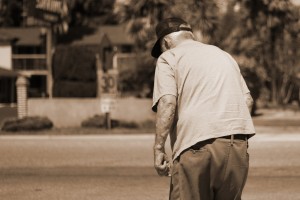Parkinson’s disease and diet
We would like to bring you some pointers when it comes to diet should you or someone you know have been diagnosed with Parkinson’s disease recently. In general the dietary requirements and guidelines for Parkinson’s patients are also good to implement for anyone, as for healthy living and for the prevention of Parkinson’s disease. The main points, are to keep a good and balanced diet which supplies the body and the mind with all the vital components to keep strong. Of course in each case of Parkinson’s disease there are individual and specific factors, which is why it’s important to speak with your doctor about what you eat and drink. A healthy diet is always also complementary to a healthy lifestyle in which you provide exercise for body and mind as well.

The first point to bring up, is to ensure that there is good variety in your diet, there is no such thing as one superfood which will provide all the nutrition you need in one easy snack, ensuring that food from every category is included in your daily intake is the first step to ensure that you are doing what you can to help you brain keep healthy.
Foods high in fibre is of vital importance, and we bring this up not because it’s rare or difficult to get enough of, just that it’s one of the things that is most commonly missing in the diet of the general public. Dark leafy greens and a lot of vegetables, peas, beans and whole grain foods is the way to ensure that you have enough.
Doing what you can to limit the intake of saturated fats and sugar is also something highly beneficial as well as only picking up the salt shaker in times where it’s really needed. Making sure that you drink at least a few glasses of water each day is also important.
Parkinson’s Disease and Diet for Tradespeople: A Guide to Managing Symptoms
Living with Parkinson’s disease can present unique challenges, particularly for tradespeople such as locksmiths, plumbers, and drain engineers who often have physically demanding jobs. While there is no cure for Parkinson’s disease, certain dietary choices can play a significant role in managing its symptoms and improving overall quality of life. In this article, we’ll explore the relationship between Parkinson’s disease and diet, and offer practical tips for tradespeople to maintain their health and well-being.
Understanding Parkinson’s Disease
What is Parkinson’s Disease?
Parkinson’s disease is a progressive neurological disorder that affects movement control. It occurs when there is a deficiency of dopamine in the brain, leading to symptoms such as tremors, stiffness, slow movement, and balance problems.
Impact on Tradespeople
Tradespeople, like locksmiths, plumbers, and drain engineers, rely heavily on physical dexterity and coordination. Parkinson’s symptoms can potentially hinder their ability to perform tasks with precision and efficiency.
The Role of Diet in Parkinson’s Management
Antioxidant-Rich Foods
Foods high in antioxidants, such as berries, spinach, and nuts, can help protect brain cells from damage caused by free radicals. Incorporating these foods into the diet may support overall brain health.
Omega-3 Fatty Acids
Omega-3 fatty acids, found in fatty fish like salmon and flaxseeds, have anti-inflammatory properties that could potentially alleviate some of the inflammation associated with Parkinson’s disease.
Protein Consumption
While protein is essential for muscle repair, consuming it in excess may interfere with the absorption of levodopa, a medication used to manage Parkinson’s symptoms. Tradespeople should consult with their healthcare provider to find the right balance.
Hydration and Medication
Staying well-hydrated is crucial for individuals with Parkinson’s disease, as dehydration can exacerbate muscle cramps and stiffness. Proper hydration also aids in the effective absorption of medication.
Crafting a Parkinson’s-Friendly Diet for Tradespeople
Balanced Meals
Prioritize a well-balanced diet rich in whole grains, lean proteins, fruits, and vegetables. This can provide a steady source of energy and essential nutrients.
Small, Frequent Meals
Eating smaller, more frequent meals throughout the day can help maintain a consistent level of energy and prevent sudden drops in blood sugar.
Avoiding Processed Foods
Highly processed foods often contain excessive salt, unhealthy fats, and additives that may contribute to inflammation. Opt for fresh, whole foods whenever possible.
Lifestyle Considerations
Regular Exercise
Engaging in regular physical activity, such as stretching and aerobic exercises, can enhance flexibility, balance, and overall mobility.
Stress Management
Tradespeople often face high levels of stress. Mindfulness techniques, meditation, and deep breathing exercises can help manage stress and promote relaxation.
Quality Sleep
Prioritize a good night’s sleep, as sleep disturbances are common in Parkinson’s disease. Creating a comfortable sleep environment and establishing a bedtime routine can improve sleep quality.
Conclusion
While Parkinson’s disease poses unique challenges for tradespeople, a well-balanced diet and healthy lifestyle choices can make a significant difference in managing symptoms and maintaining overall well-being. By incorporating nutrient-rich foods, staying hydrated, and prioritizing self-care, individuals can take proactive steps toward a better quality of life.
FAQs
- Can diet alone cure Parkinson’s disease? While diet cannot cure Parkinson’s disease, it can help manage symptoms and improve the individual’s quality of life.
- Are there any specific foods that should be completely avoided? There is no one-size-fits-all answer. However, minimizing processed foods and excessive protein intake is generally recommended.
- Can tradespeople with Parkinson’s disease continue working? Many tradespeople with Parkinson’s disease can continue working, especially with accommodations and support.
- Is caffeine consumption advisable for individuals with Parkinson’s? Some studies suggest that moderate caffeine intake may have potential benefits for Parkinson’s disease, but it’s best to consult a healthcare professional.
- Where can I learn more about managing Parkinson’s symptoms? For more information and resources, visit Parkinson’s Foundation.